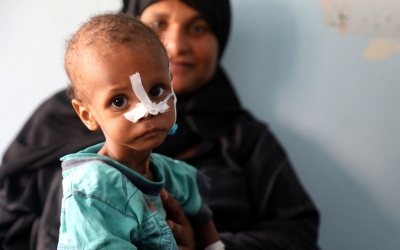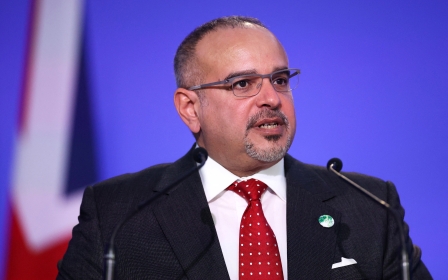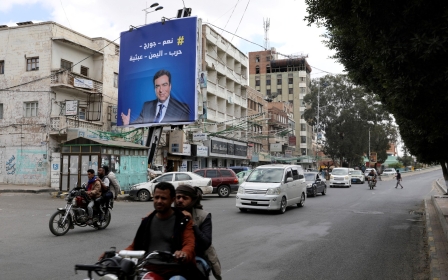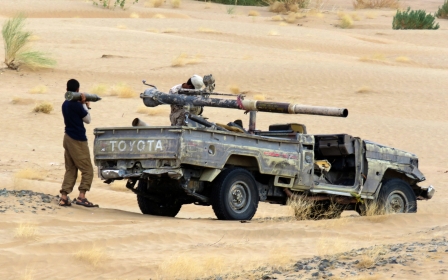Yemen: Unsung local mediators help return bodies of fallen soldiers to families
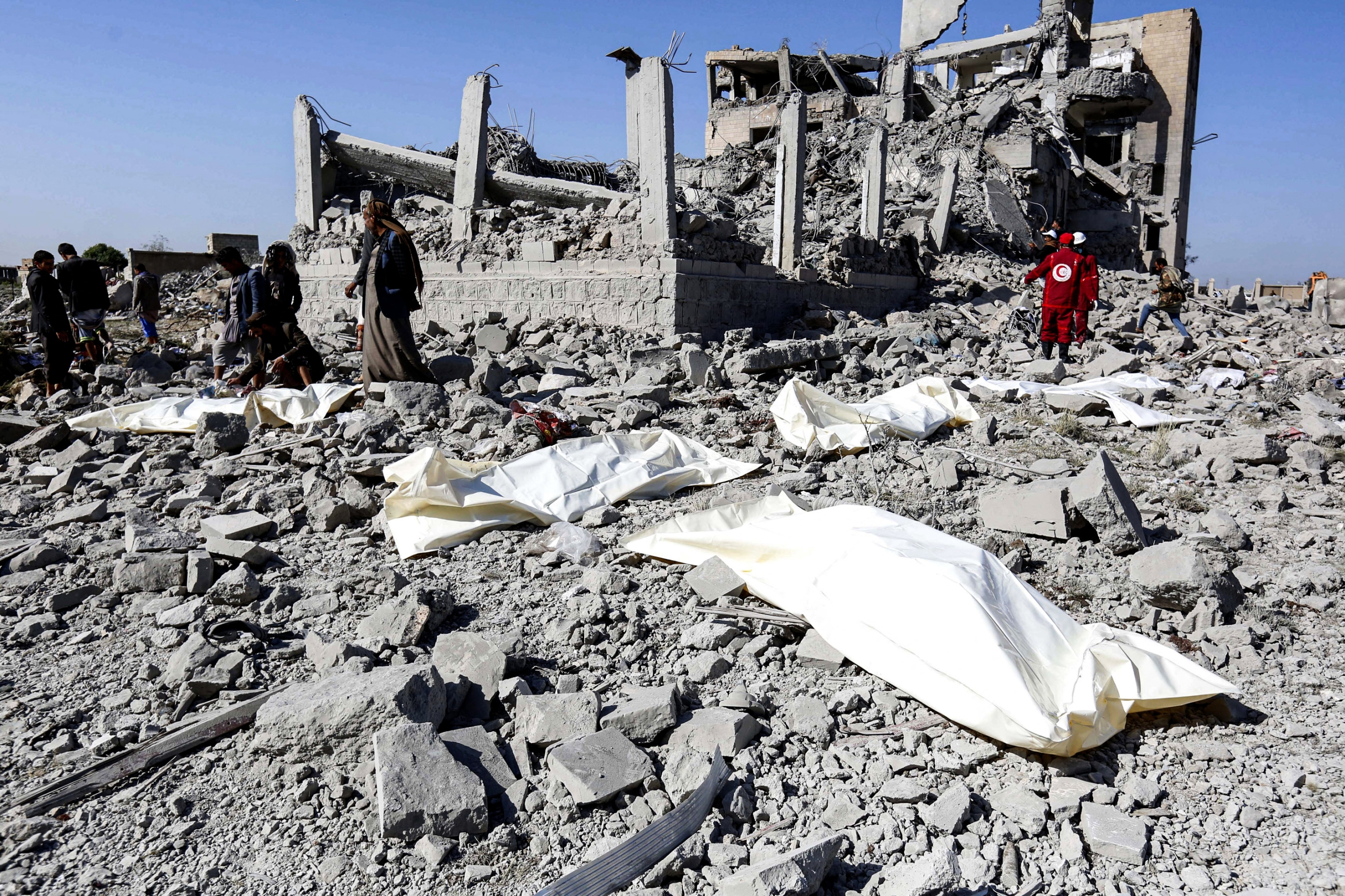
Local mediator Hadi Jumaan's current job started in September 2015, seven months into Yemen's still-raging civil war, when a relative of his in Al-Jawf province came to him, asking for help in the retrieval of his brothers’ corpses from the front lines.
“After I evacuated the corpses in September 2015, people started to come to me asking to help them in evacuating the corpses of their relatives,” Jumaan told Middle East Eye.
'My job is very dangerous, but I decided to do it to create happiness in the hearts of families'
- Hadi Jumaan, local mediator
“The relatives of dead fighters were pessimistic and there was nothing they could do. Then I started to meet both warring sides in Al-Jawf province and make agreements about evacuating corpses.”
Jumaan reasoned that to see the dead body of a relative was better than letting it lie abandoned in a desert or mountain, so he made it his mission to work to return the missing to their families.
“I started my work in Al-Jawf, but later I received more requests from fighters’ families in other provinces, so now I’m working in the whole country, in areas like Marib, Al-Bayda, Taiz, Saada and others,” he said.
New MEE newsletter: Jerusalem Dispatch
Sign up to get the latest insights and analysis on Israel-Palestine, alongside Turkey Unpacked and other MEE newsletters
Jumaan, a former Boy Scout, trained around 70 volunteers, including 12 women, to assist him in his role. He receives no support from any organisation and had to borrow money to pay for the work, which is often dangerous and has seen him twice wounded by gunfire and caught up in a nearby explosion.
He wears white clothes when he goes to recover the corpses, so he can be recognised by the fighters and stay safe. He meets field leaders at the front lines and the families of fighters before going to retrieve their bodies. He has also started work in prisoner exchange.
Jumaan has retrieved more than 1,000 corpses and released 226 prisoners from all sides of the conflict, in different provinces. In November he has so far recovered more than 20 corpses.
"To evacuate corpses of dead fighters, sometimes I need months, as I talk to both sides; and I should evacuate corpses of fighters from two sides, so it takes time. Sometimes I get detained under accusation of working for one of the sides, but then I am released as I’m an independent man and all I want to do is help people," he said.
"My job is very dangerous, but I decided to do it to create happiness in the hearts of families."
Hidden heroes
Jumaan is just one example of local mediators who have been working since the beginning of the war to negotiate prisoner exchanges or bring home the corpses of fighters.
The conflict in Yemen has led to more than 230,000 fatalities, an estimated four million people have been displaced, and 80 percent of the country's 29 million people are dependent on aid for survival, according to the UN.
A coalition of forces led by Saudi Arabia intervened in Yemen in March 2015 after the Iran-aligned Houthis ousted the Riyadh-backed government from power in late 2014.
Translation: In continuation of the local mediation efforts yesterday, Sunday, October 17, 2021, a number of 12 bodies were recovered and exchanged between the two sides of the conflict, from the axis to the northeast border guards. I made an agreement and understanding between the two parties to the conflict to exhume all the bodies, and the exchange between them was completely unconditional.
Yemenis regularly hear about prisoner exchanges between the Houthi rebels and groups aligned to the internationally recognised government, but they rarely know the names or faces of the people who mediated.
A relative of a released prisoner in Taiz described local mediators like Jumaan as a “last glimmer of hope” for the families of fighters.
“The local mediators who are accepted by both warring sides and have the skills to negotiate and evacuate corpses of fighters, or lead in prisoner exchange, are few in the country," he said, speaking to MEE on condition of anonymity. “If a family want to release their son, they don’t go anywhere but to local mediators who can help.”
Prisoners released
In December 2018, the warring parties in Yemen agreed to release all prisoners, detainees, missing persons, arbitrarily detained and forcibly disappeared persons, and those under house arrest, held in relation to the events in Yemen, without any exceptions or conditions. Unfortunately, the agreement was only partially implemented and the majority still remained in detention.
In October 2020, the Houthis and pro-government forces exchanged hundreds of prisoners following UN-sponsored talks in Switzerland.
“We know that the United Nations released part of the prisoners, but I can confirm that thousands were released by local mediators in different periods and areas,” the relative said.
He said the happiness of families when they received their released sons was incomparable.
“A son is the dearest thing for parents, so I see my aunt now is better and she laughs and says jokes, but when her son was in prison she was sad most of the time,” he explained. "If not for local mediators, my aunt wouldn’t have seen her son."
Middle East Eye delivers independent and unrivalled coverage and analysis of the Middle East, North Africa and beyond. To learn more about republishing this content and the associated fees, please fill out this form. More about MEE can be found here.


